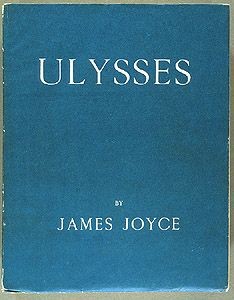Borges' translation of Ulysses
Or of the last page of Ulysses as a translation of Ulysses

In post 7, I quoted Sergio Waisman from Borges and Translation: The Irreverence of the Periphery: “Like any act of writing, translation is always undertaken from a specific site: the translator’s language, but also the entire cultural and sociohistorical context in which translators perform their task.” In the in-traduisible, we translate the intra-duisible. Induce the text through the veil of the nuisible.
Which makes it almost impossible to answer the question of who the translator serves. The reader-cannibal-flesh/word-eater? Or the mercenary-writer who uses the translator (sometimes from beyond the grave) to pull a hat over her or his own face? Translating, one wishes to serve the text itself, but the conditions of reception in one’s own language make the process like shuffling a deck of cards with your arms behind a curtain.
The translation that results bears the memory of the original, and also incorporates into its fibre the resistance of the reader to let the foreign into their language, the resistance that is a cauterization of any reading practice from its very start: because we live somewhere. Somewhere translates itself into the translation. The prescription of untranslatability may haunt the translator, but as I translate, no, I am not haunted, I turn and wear the text, making its fibre into my fibre.
I think here of Borges, who in January of 1925 published the first translation in the Spanish-speaking world (so many sites!) of James Joyce’s Ulysses in the Argentinian magazine Proa, nine years before the book was available in English in North America (its first printing was burned as obscene on arrival from Europe).
Yet, to tell the truth, it was almost twenty years after Borges’ publication that the first full translation of the Joyce work appeared in Spanish. For Borges, admitting he hadn’t read the whole book, translated for Spanish-speaking readers only the last page of Joyce’s novel. It was a decision of the translator, responding to the text through the curtain. Pulling the hand back after shuffling the deck. Holding the ace of spades.
As if one page, in the Argentinian context, contained such riches that it was, in a paradoxical sense, an entire translation. Not full, but entire.
To translate a whole book by translating only its final page! And change the course of Argentinian literature. Here a border literature, the Argentinian, leans into another border literature, the Irish, and insists on its accent. Borges ingeniously picks up the burr of Joyce’s own English by using the voseo of the Río de la Plata, the second-person pronomial form that marks the text as non-international, as local, as Argentinian. Sited. And he leaves out English words that translate badly into Spanish. In the outpouring of the tea and mantilla and sea that, even in English, crosses so many borders (for Joyce’s work is already the result of multiple translations), Borges captures something riveting, then stops. For the book is over. Again, Sergio Waisman: “Paradoxically, not only do Borges’s creative infidelities lead to a new version, they also produce an unexpected sense of hyperfidelity to the source text.”
His translation, though not full is far from empty, for it is complete, entire.
T r a n s l a t i o n ' s__H o m e o p a t h i c__G e s t u r e s